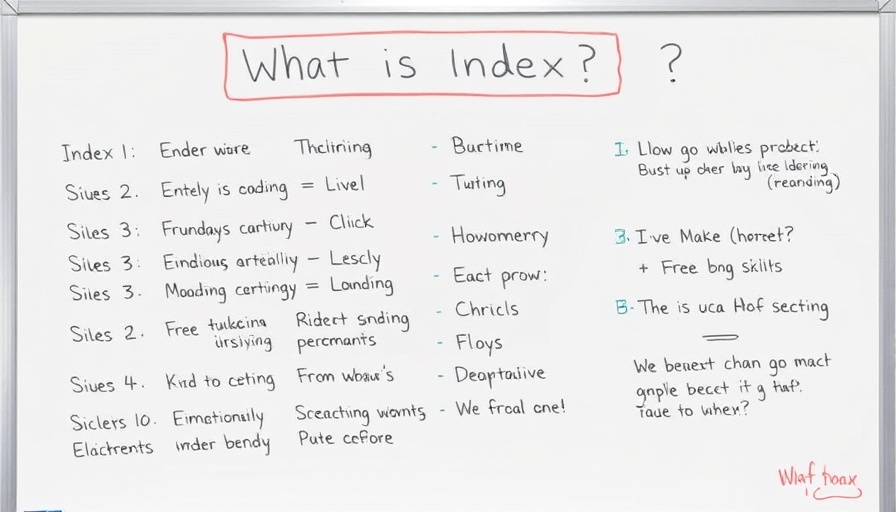
Understanding Index Bloat: A Deep Dive
Index bloat is a technical SEO issue that primarily impacts medium to large websites, leading to a cluttered index filled with low-quality pages that detract from overall site performance. When search engines like Google crawl a site, they prioritize pages that offer valuable content to users. However, if a site has too many unnecessary pages—like outdated product listings or duplicate content—search engines waste their crawling resources on these low-value pages, which ultimately hurts the site's ranking.
Identifying if Your Site is Affected
To determine if your website is suffering from index bloat, it’s essential to monitor the number of indexed pages regularly. A simple method is to use Google Search Console. If the number of indexed pages is significantly higher than what you anticipate, it may indicate underlying issues. For example, if your site only should have 10,000 pages indexed but Google shows 38,000, there’s a clear problem that needs addressing.
Consequences of Index Bloat
Index bloat not only confuses search engines but also complicates the user experience. A website overwhelmed with low-quality pages can lead to fewer conversions as potential customers struggle to find relevant information. Furthermore, it can create duplicate content issues, which Google tends to penalize. Prioritizing quality over quantity in indexed pages is crucial for maintaining a healthy SEO standing.
Solutions to Clean Up Your Index
There are several effective strategies for mitigating index bloat. First, use the meta robots tag to tell search engines explicitly which pages they should not index. This can significantly reduce the clutter. Second, consider employing the canonical tag to indicate the primary version of duplicated content pages. Additionally, regularly use the Google URL Removal Tool to request the removal of pages that should not be indexed. By consolidating content and refining URL structures, you save your crawl budget and enhance overall site quality.
Actionable Insights for Website Owners
For website owners, understanding index bloat is not merely an academic exercise; it has real consequences for your site's performance. Conduct an audit to assess the quality of indexed pages, flag any that do not serve your user base, and employ best practices to manage your site's indexing strategy effectively. By staying ahead of potential issues, you create a cleaner, more efficient website.
 Add Row
Add Row  Add
Add 




 Add Row
Add Row  Add
Add 

Write A Comment